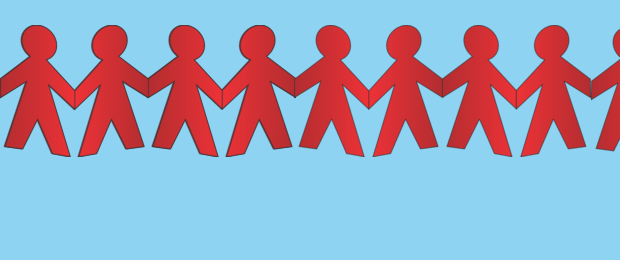Child abuse comprises four basic types of mistreatment: child neglect, physical abuse of a child, emotional abuse of a child, and sexual abuse of a child.
Sexual abuse is the third least frequently reported form of child abuse. Experts believe that sexual abuse may be the most underreported type of child maltreatment because of the secrecy, the “conspiracy of silence” that so often surrounds these cases. Often times the children are afraid to tell anyone what has happened, are unable to verbalize the abuse, are embarrassed, or repress memories of abuse.
Sometimes children who reveal sexual abuse are not believed or supported. Children who disclosed abuse can face negative reactions from family members ranging from being told to keep quiet or to “forget†about the abuse to being berated and punished for “telling lies.†In addition to suffering from the effects of the abuse itself, such children grow up feeling betrayed and abandoned by the people who should have protected them.
Child sexual abuse can take place within the family, by a parent, step-parent, sibling or other relative; or outside the home, for example, by a family friend, neighbor, caregiver, or stranger.
- · 90% of child sexual abuse victims know the perpetrator in some way; 68% are abused by family members.
- · Child abuse occurs at every socioeconomic level, across ethnic and cultural lines, within all religions and at all levels of education.
When sexual abuse has occurred, a child can develop a variety of distressing feelings, thoughts and behaviors. Â This can lead to problems in adulthood as well.
Some survivors of abuse may struggle with depression, low self-esteem, self-blame, dissatisfaction with life, anxiety, dissociation, difficulties in relationships, a tendency to be either domineering or submissive, an inability to trust oneself and others, problems defining healthy sexuality, self-destructive behaviors including suicidal ideation, difficulty dealing with anger, stress-related illnesses, addictions, eating disorders, and acting out sexually.
If a child confides in you that he/she has been sexually abused, it’s important for you to listen and to believe his/her story. The incidence of false reporting of incest and sexual abuse is very low. Reassure the child that that fault lies entirely with the perpetrator and not—even in the slightest way—with the child.
It’s our responsibility as adults to listen, to be compassionate and to ensure the child gets proper help.
It is also vital to report any abuse to the proper authorities. This may prevent other children from being abused and protect children from further abuse.   It is widely believed that most offenders of child sexual abuse will most likely offend again.
As a community it is important to be aware of the dangers of sexual predators and offenders in order to better protect children from sexual abuse. If a child confides in you about abuse , report it to local law enforcement immediately.
The term “sexual predator” defines persons who try to force, harass or obtain sexual activity with others through predatory means including the Internet, the telephone or by stalking. In the United States, criminals who use violence against victims receive the status of sexually violent predators.
Sexual Offender -The term sexual offender describes individuals convicted of sex crimes including, rape, sexual assault, kidnapping and child pornography.
Child Victimizers-Child victimizers specifically target children 13 years or younger to stalk, rape, molest or endanger.
Recidivism-The term “recidivism” describes criminals who repeat criminal acts. According to the U.S. Department of Justice Bureau of Statistics, sexual offenders repeat-offend approximately four times more than other types of offenders after release from prison.
Sexual Offender Registry-Many states and countries require sexual predators to register with a sexual offender registry so that they can be located, have their activities monitored and protect and alert communities to their whereabouts.
Taken from the Arkansas State Statues Definitions on Child Abuse:
Sexual Abuse/Exploitation
Citation: Ann. Code § 12-18-103
‘Sexual abuse’ means:
By a person age 10 or older to a person younger than age 18:
Sexual intercourse, deviate sexual activity, or sexual contact by forcible compulsion
Attempted sexual intercourse, deviate sexual activity, or sexual contact by forcible compulsion
Indecent exposure
Forcing the watching of pornography or live sexual activity
By a person age 18 or older to a person not his or her spouse who is younger than age 16:
Sexual intercourse, deviate sexual activity, or sexual contact
Attempted sexual intercourse, deviate sexual activity, or sexual contact
By a caregiver to a person younger than age 18:
Sexual intercourse, deviate sexual activity, or sexual contact
Attempted sexual intercourse, deviate sexual activity, or sexual contact
Forcing or encouraging the watching of pornography
Forcing, permitting, or encouraging the watching of live sexual activity
Forcing the listening to a phone sex line
An act of voyeurism
By a person younger than age 10 to a person younger than age 18:
Sexual intercourse, deviate sexual activity, or sexual contact by forcible compulsion
Attempted sexual intercourse, deviate sexual activity, or sexual contact by forcible compulsion
‘Sexual contact’ means an act of sexual gratification involving:
Touching, directly or through clothing, the sex organs, buttocks, or anus of a person or the breast of a female
Encouraging of a child to touch the offender in a sexual manner
The offender requesting to touch a child in a sexual manner
‘Sexual exploitation’ means:
Allowing, permitting, or encouraging participation or depiction of the child in prostitution, obscene photography, or obscene filming
Obscenely depicting, posing, or posturing a child for any use or purpose.
This is the first in a series of articles that we will be posting on abuse. We feel that having these discussions and sharing information with the public in an open and honest way can help to inform people that this type of abuse does exist. Sadly it is an issue that comes up all to often.Â
